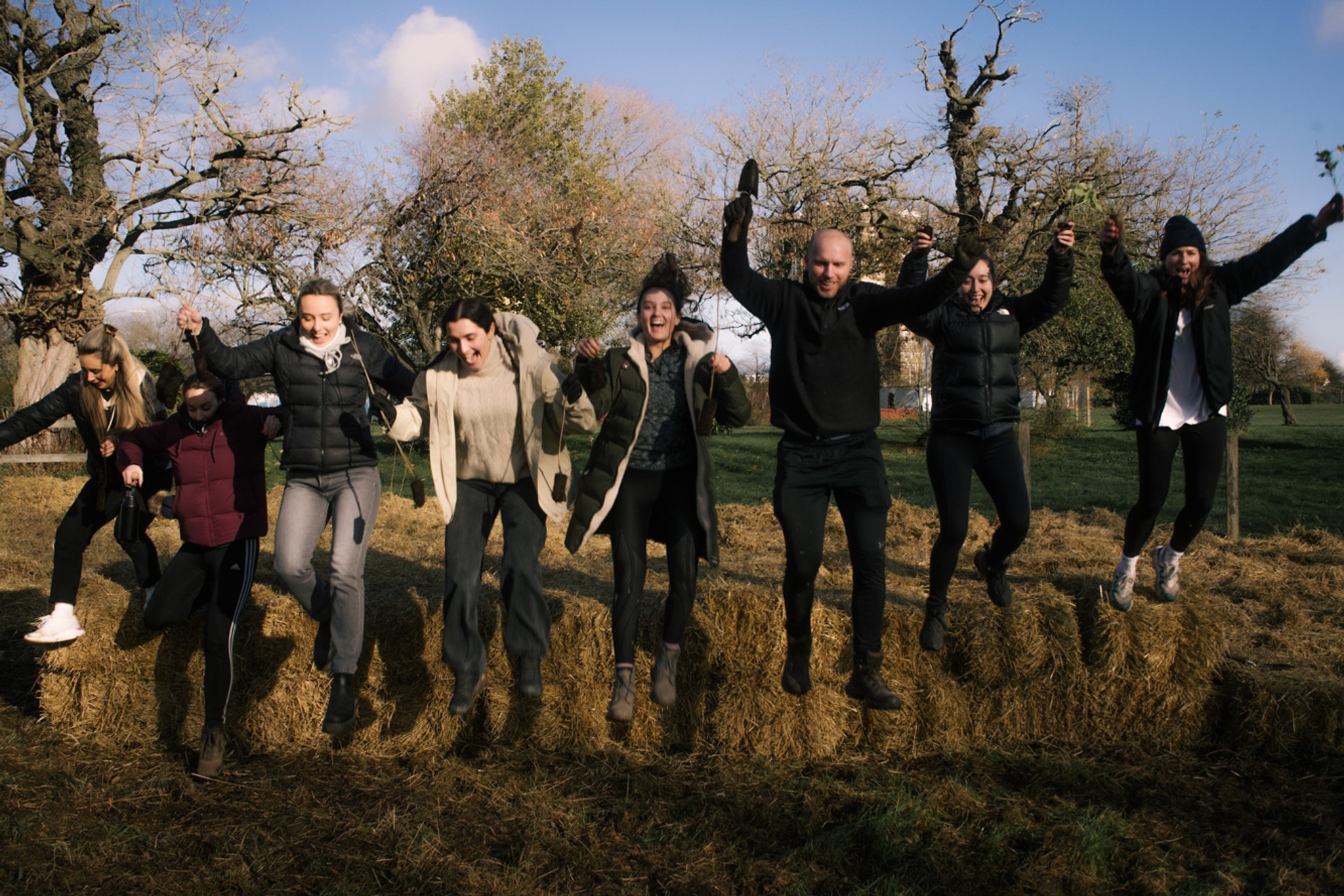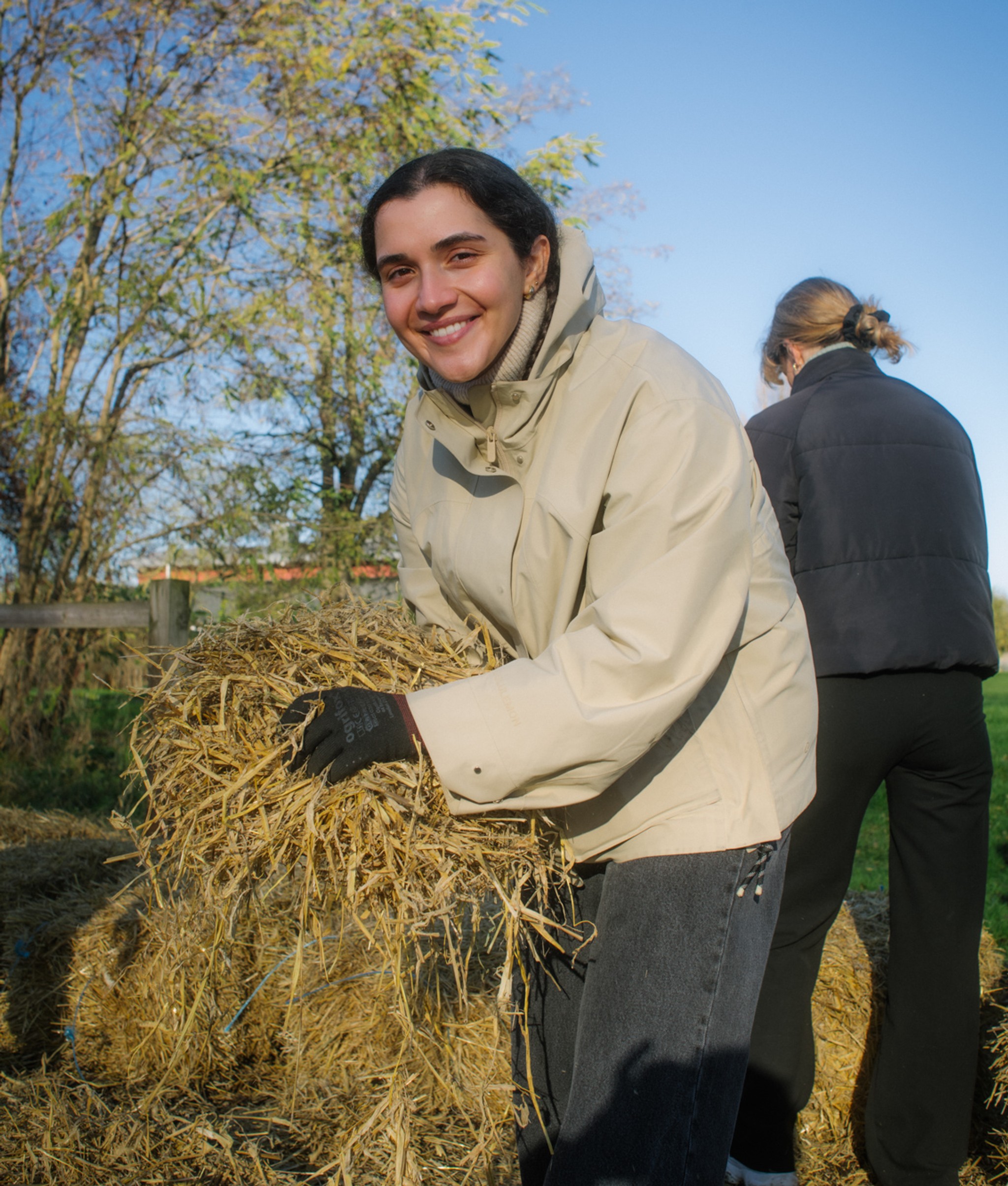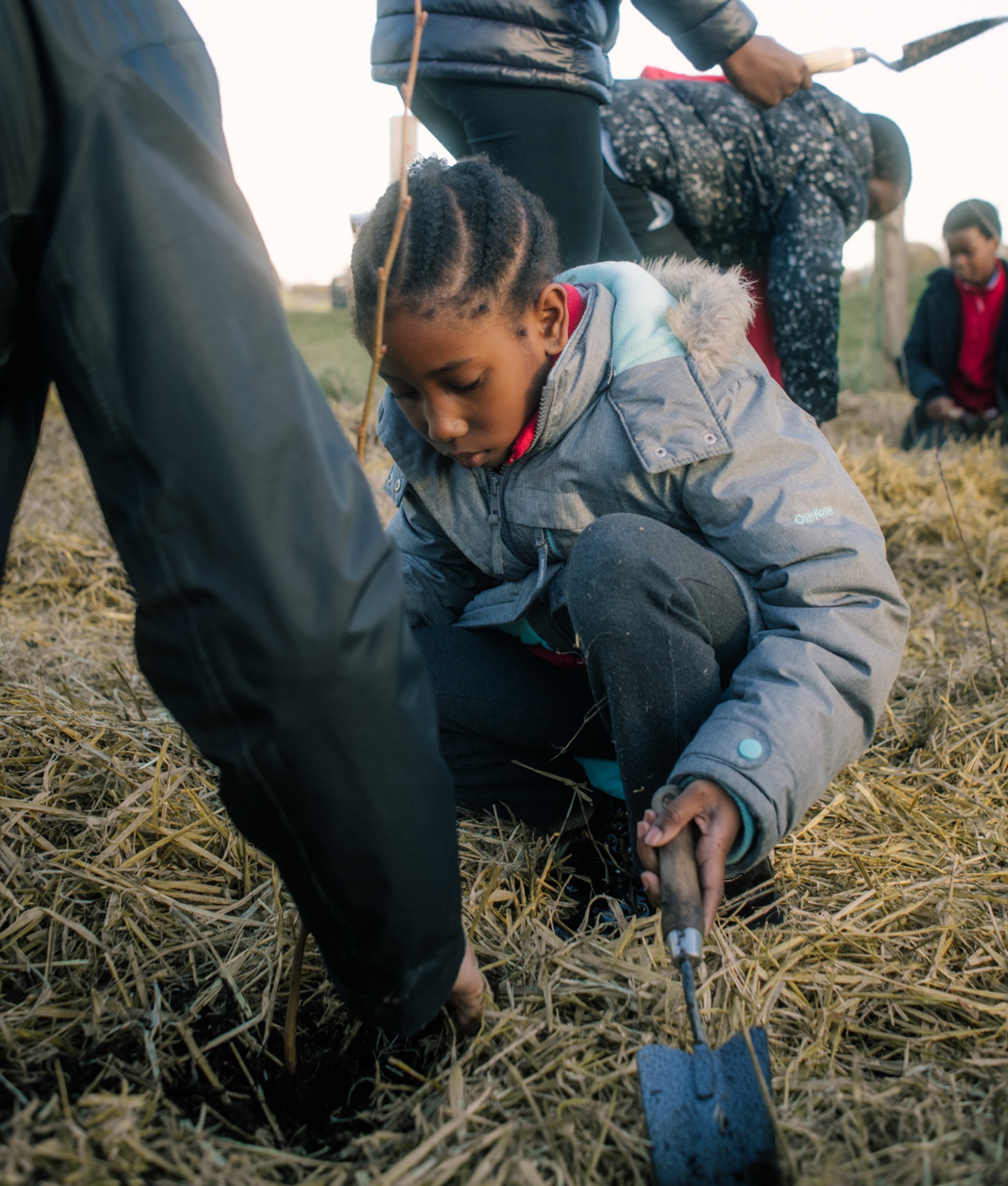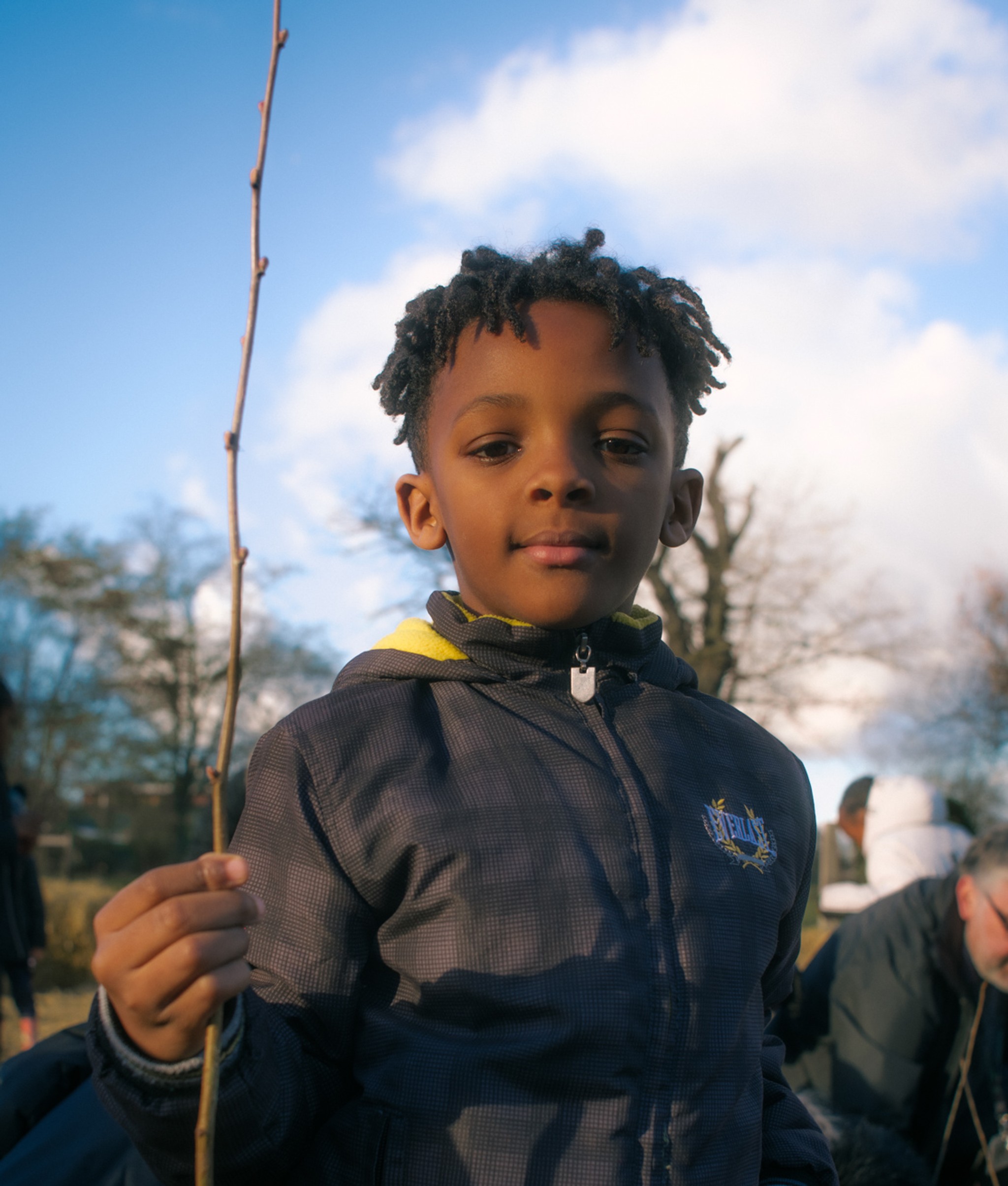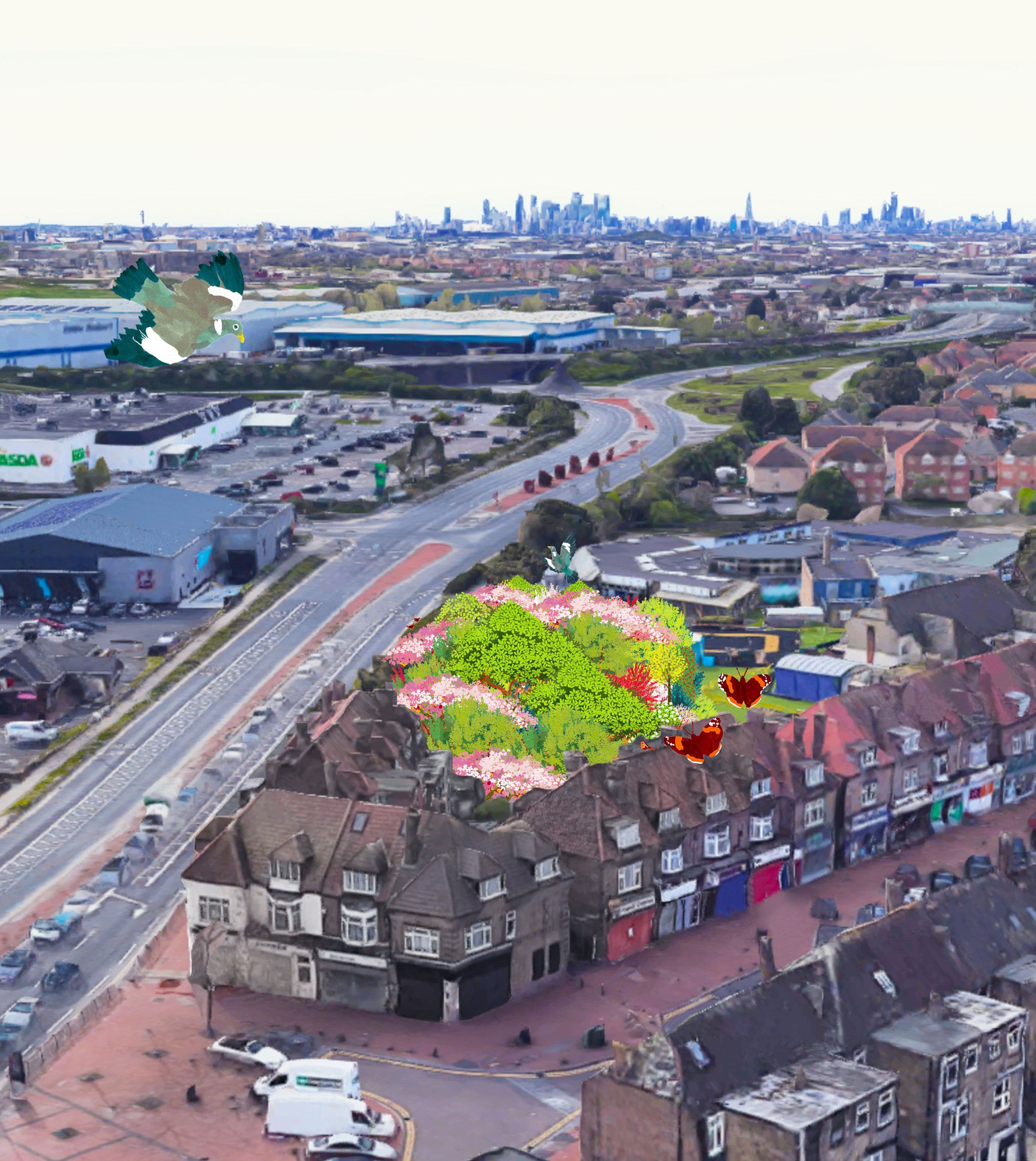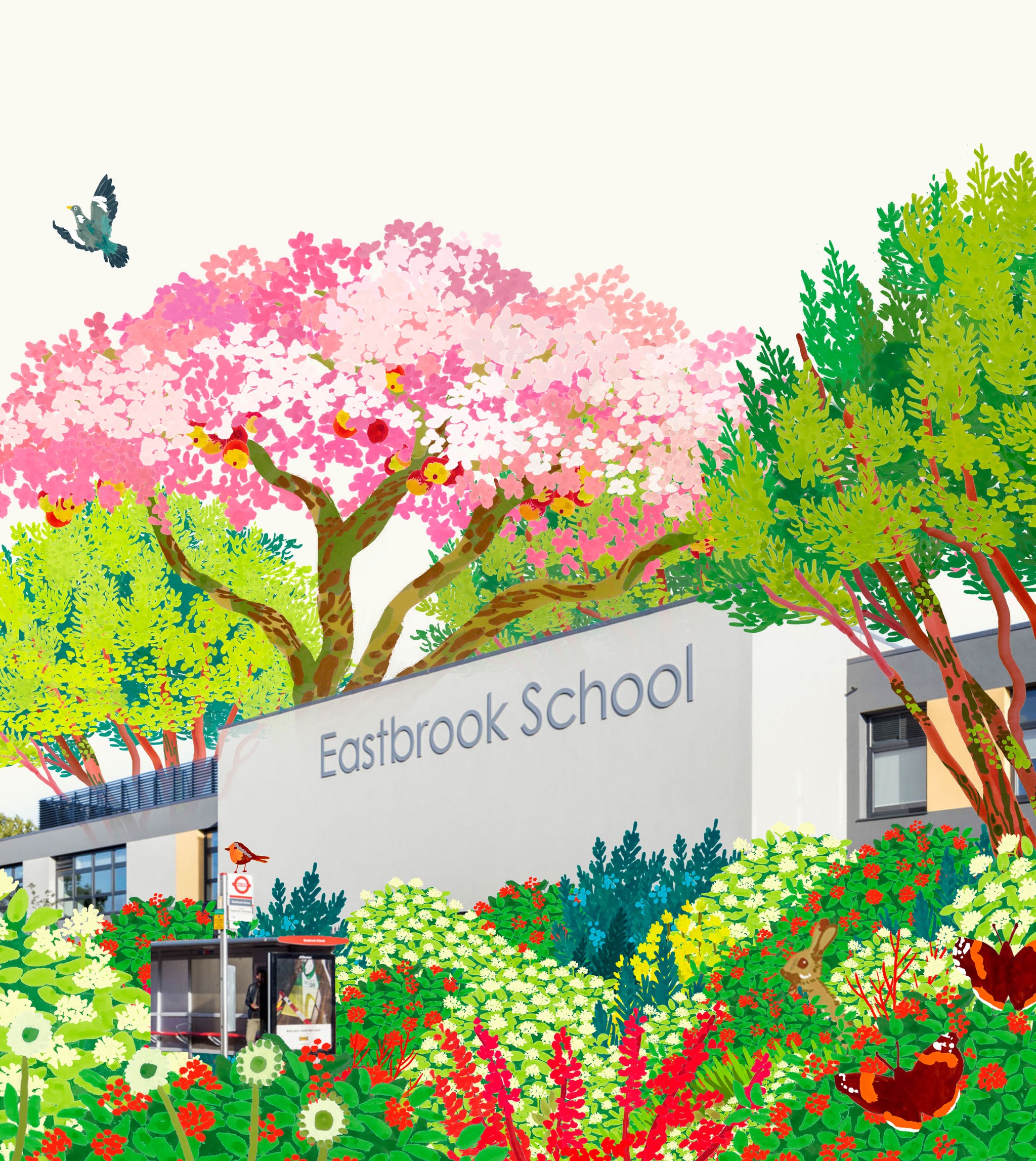Harmony Forest
A native forest and fruit orchard for students.

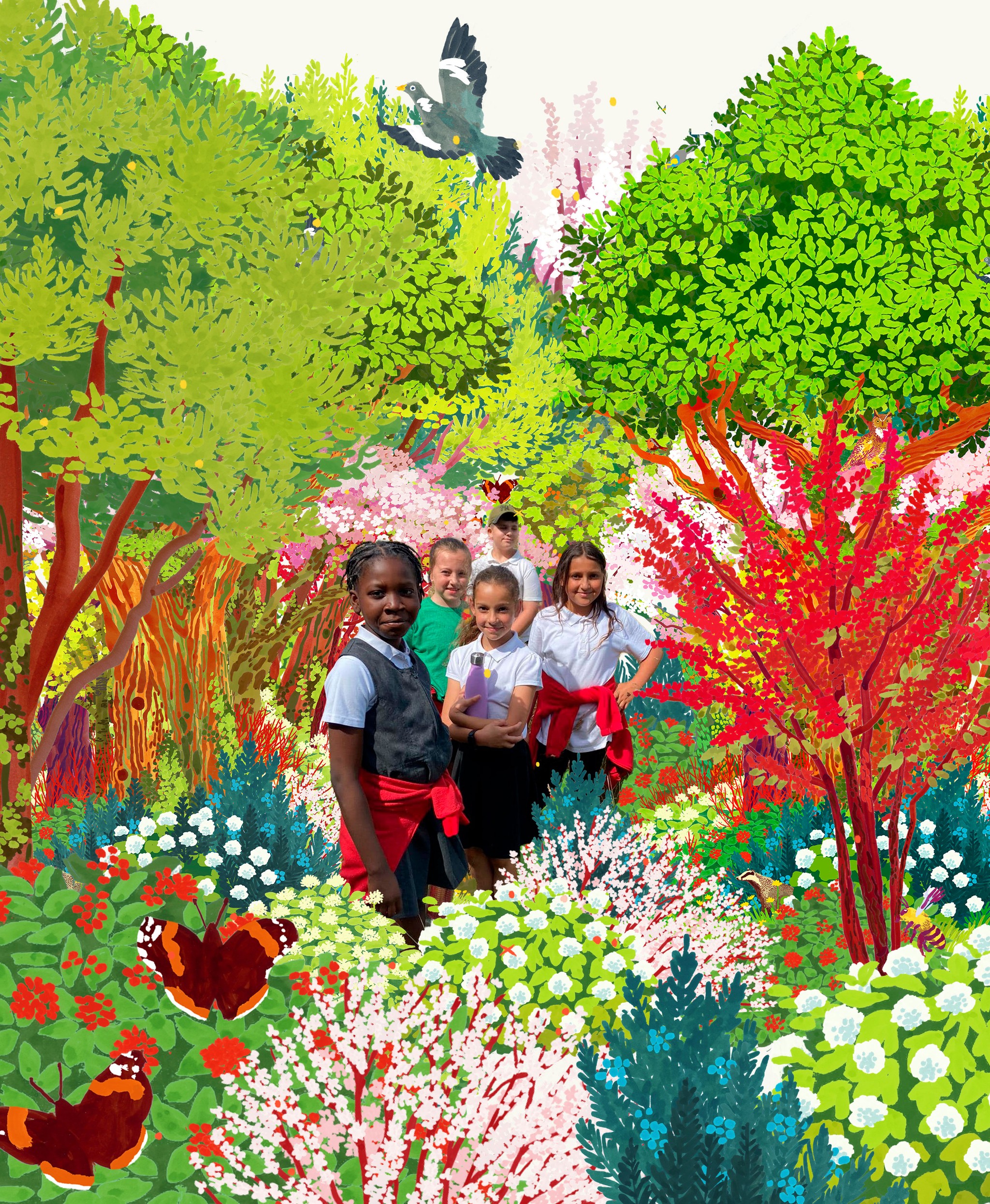
0
Trees
0
Square Meters
0
Native Species
0
Youth Impacted
We have created this pocket forest on the grounds of William Ford Church of England School in Dagenham. The project began with the planting of two phases of Miyawaki Forest, featuring native species like Crack Willow and Elder. Adjacent to the forest, we added a fruit orchard, introducing apple (Malus sylvestris), pear (Pyrus), and plum (Prunus domestica) trees. As the trees mature, students will have the opportunity to harvest and enjoy the fruits, connecting them directly to the food cycle. This hands-on experience offers a unique educational opportunity, helping children understand where their food comes from while instilling a sense of environmental stewardship. They will literally be able to enjoy the fruits of their labor, deepening their connection to Nature and sustainability.
The forest has been integrated into the school curriculum, serving as an outdoor classroom for the school’s 330 pupils, aged between 7 and 11. Outdoor learning offers numerous benefits, including improved well-being and enhanced development, which the children can experience as they explore and interact with the forest. Additionally, the forest has created a vital ecological corridor and habitat that supports biodiversity. The fruiting trees will provide food for insects, which, in turn, supports insectivorous bird species such as migrant chiffchaffs and willow warblers.
Forest Maker
James Godfrey-Faussett


Forest Partner:

Forest Design
The pocket forests are meticulously crafted to seamlessly integrate with the surrounding urban environment, whether at a grand or intimate scale.
Embracing a multitude of advantages, this verdant oasis not only offers a plethora of benefits but also serves as an ideal setting for students to forge meaningful connections and acquire knowledge inspired by the natural world.
Phase I
Phase II
Phase III

Forest Report: 2024
0 Months
Forest Age
0%
Survival Rate
0m
Average of Tallest 3 Trees
The forest has been growing well but at very different rates - as some trees are about 2 metres high but other parts are still very similar to the planting height. A lot of foreign plants have invaded the planting area from the other parts of the park that the forest is planted in, so we might consider organising a weeding session in the forest.
Biodiversity Notes:
Planting: Phase II

Planting: Phase I

























